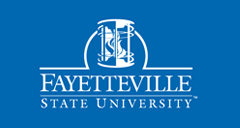Abstract
In this work, the researcher examined the effects of professional learning communities (PLCs) on teachers’ perceptions after initial implementation at select high schools in North Carolina, USA. Professional learning communities is a type of school change that emphasizes the importance of trust, collaboration, and job embedded learning by teachers in order to advance academic achievement of students. Professional learning communities entail five main dimensions. These dimensions involve the sharing of leadership, vision, values, and expertise as well as investigating student needs through collaborative inquiry. Professional learning communities need to meet regularly in order to address these dimensions.
There were 111 participants who were involved in either the pretest or posttest using the School Professional Staff as Learning Community Questionnaire (SPSaLC, 1996). The survey was provided electronically and data were analyzed using SPSS. The analyses indicated that professional learning communities have the potential to promote academic goals but expanded allocations of time and resources, improved acceptance by teachers, and stronger support of school leaders are needed.
Recommendations include conducting a broader study to include more North Carolina School systems that are using professional learning communities. In addition, conducting a study that encompasses all grade levels using professional learning communities would be advantageous. A longitudinal study within school systems using professional learning communities is essential to monitor and determine the progression of professional learning communities.
Recommended Citation
Higgins, Kelly
(2016)
"An Investigation of Professional Learning Communities in North Carolina School Systems,"
Journal of Research Initiatives: Vol. 2:
Iss.
1, Article 9.
Available at:
https://digitalcommons.uncfsu.edu/jri/vol2/iss1/9
